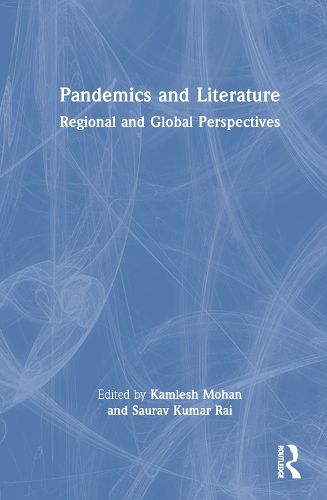Readings Newsletter
Become a Readings Member to make your shopping experience even easier.
Sign in or sign up for free!
You’re not far away from qualifying for FREE standard shipping within Australia
You’ve qualified for FREE standard shipping within Australia
The cart is loading…






This volume provides a literary-cum-historiographical analysis of epidemics and pandemics. It looks at folklore, tribal folktales, eyewitness accounts, memoirs and missionary writings from India and the west to explore the history of some of the major outbreaks in history. The chapters focus on the impact of outbreaks such as plague, cholera, malaria, tuberculosis and COVID-19, upon the material life of people, their social dislocation and their complex responses to such crises.
The book studies the role of pandemics in pushing scientists, social actors and litterateurs to develop new paradigms in knowledge generation, theories of environmental dislocation and the economic slide. It examines themes such as changes in the perception of epidemic diseases across different periods of history, popular responses to state intervention during epidemics, gendering epidemics, as well as the impact of rumours during epidemics.
An important contribution to the social history of health and medicine, the volume will be useful for students and researchers of cultural studies and medical anthropology, public health, literature, history of pandemics and epidemics, sociology of medicine and South Asian studies.
$9.00 standard shipping within Australia
FREE standard shipping within Australia for orders over $100.00
Express & International shipping calculated at checkout
This volume provides a literary-cum-historiographical analysis of epidemics and pandemics. It looks at folklore, tribal folktales, eyewitness accounts, memoirs and missionary writings from India and the west to explore the history of some of the major outbreaks in history. The chapters focus on the impact of outbreaks such as plague, cholera, malaria, tuberculosis and COVID-19, upon the material life of people, their social dislocation and their complex responses to such crises.
The book studies the role of pandemics in pushing scientists, social actors and litterateurs to develop new paradigms in knowledge generation, theories of environmental dislocation and the economic slide. It examines themes such as changes in the perception of epidemic diseases across different periods of history, popular responses to state intervention during epidemics, gendering epidemics, as well as the impact of rumours during epidemics.
An important contribution to the social history of health and medicine, the volume will be useful for students and researchers of cultural studies and medical anthropology, public health, literature, history of pandemics and epidemics, sociology of medicine and South Asian studies.